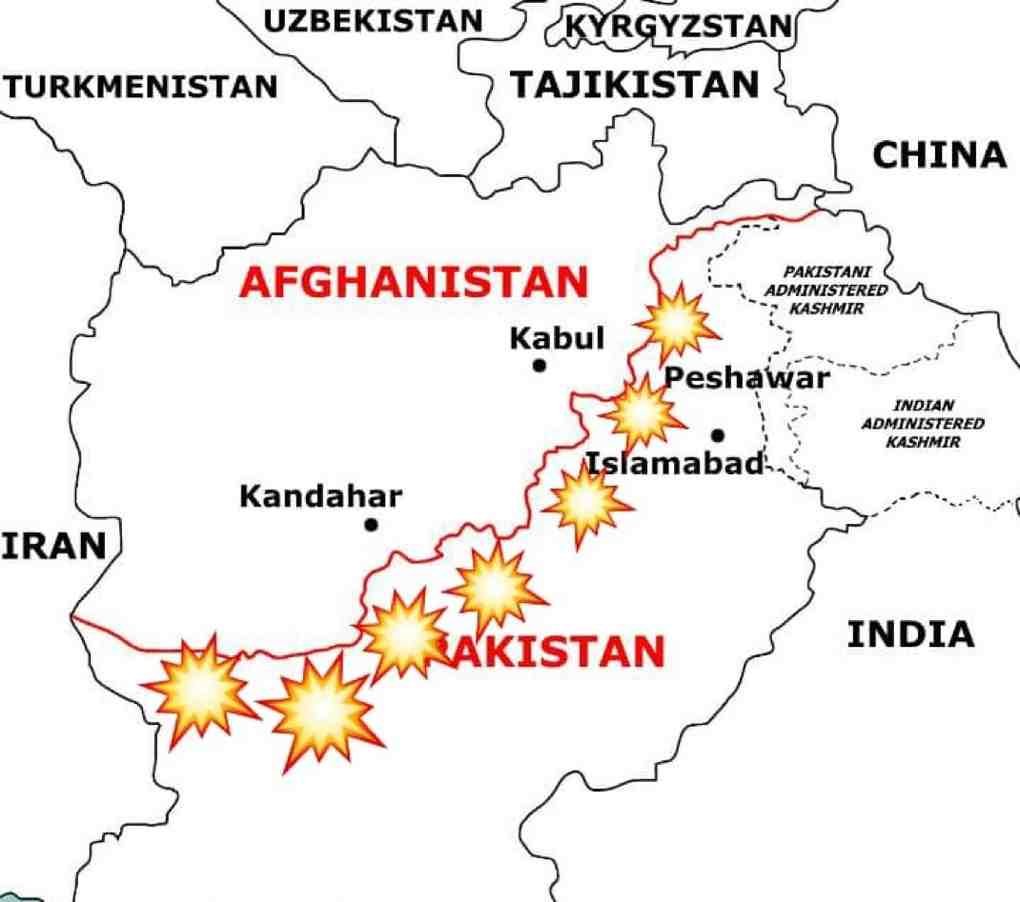Pakistan and Afghanistan’s Taliban regime have once again locked horns, this time over allegations that Islamabad harbours ISIS militants and has violated Afghan sovereignty through airstrikes. The conflict escalated yesterday when Taliban forces launched retaliatory attacks on Pakistani military positions along the Durand Line, claiming to have killed as many as 58 Pakistani soldiers and wounded over 30, while seizing multiple border outposts.
Rising Tensions, Reinforced Claims
Taliban spokesperson Zabeehullah Mujahid accused Pakistan of turning a “blind eye” to the presence of ISIS operatives on its soil, demanding that Islamabad either expel key ISIS figures or hand them over to the Afghan authorities. According to him, ISIS poses a regional threat by using bases in Pakistan’s Khyber Pakhtunkhwa and accessing airports in Islamabad and Karachi for movement and logistics.
In defending its retaliatory strikes, the Taliban stated that a “significant amount of weapons” fell into their hands during clashes. They acknowledged that more than 20 of their own fighters were killed or wounded in the exchanges and vowed that any further violation of Afghan land or airspace would be met with a “harsh response.”
Pakistan has yet to confirm the Taliban’s casualty claims. However, state media outlets cited military sources asserting that Pakistani forces had successfully struck Taliban-held positions and destroyed multiple bases near the border. Pakistani Interior Minister Mohsin Naqvi condemned the Afghan attacks as unprovoked and a breach of international law, stating that civilian populations had also come under fire.
Border Exchanges Escalate
The clashes reportedly occurred across a dozen districts straddling the Pakistan–Afghanistan boundary, including Helmand, Kandahar, Zabul, Paktika, Paktia, Khost, Nangarhar, and Kunar provinces. Taliban media claims suggest that three Pakistani border posts in Kunar and Helmand were captured during the operations.
Pakistani officials, meanwhile, asserted they struck back aggressively—targeting Afghan positions and striking suspected militant hideouts. They also claimed to have downed three Afghan drones near Khyber Pakhtunkhwa.
In response to the cross-border fighting, Islamabad temporarily shut the Torkham and Chaman border crossings.
Taliban 2.0 with their upgraded weapons and equipment.
Taliban have launched a full scale assault along the entire border with Pakistan.
60+ Causalities and Dozens of Pakistani soldiers Captured.
Pakistan has started Air strikes on Kabul.
India is watching closely and… https://t.co/itcG8FoVR8 pic.twitter.com/3AhoSY1d6G
— #𝕎𝕒𝕣 ℍ𝕠𝕣𝕚𝕫𝕠𝕟 (@WarHorizon) October 11, 2025
Accusations and Strategic Calculus
The Taliban’s central allegation is that Pakistan is offering sanctuary to ISIS in order to destabilize Afghanistan or to maintain leverage over Kabul. By demanding their expulsion or extradition, the Taliban is placing Islamabad in a difficult diplomatic posture: comply or risk further military escalation.
For Pakistan, the presence of both ISIS and Tehrik-e-Taliban Pakistan (TTP) militants on Afghan soil has long been a point of contention. Islamabad has repeatedly accused Kabul of failing to curb these groups, which Pakistan claims regularly launch cross-border attacks. The Taliban regime denies complicity and asserts its own commitment to rooting out disruptive elements within its territory.
Yet the abruptness and scale of the border retaliation suggest the Taliban seeks to raise the costs of Pakistani air intrusions and pressure Islamabad diplomatically. The fact that the strikes were halted reportedly at the behest of mediators in Qatar and Saudi Arabia points to regional efforts to defuse the situation before it spirals further.
Risks of Further Escalation
Experts warn the tit-for-tat nature of these exchanges carries high risks, especially in border zones already rife with militant activity and porous to infiltration. Civilian populations in frontier districts may suffer disproportionally from artillery, airstrikes, and displacement.
At the same time, Islamabad faces internal pressures: it cannot tolerate a narrative of lax oversight over ISIS sanctuaries, especially amid growing domestic security challenges. Meanwhile, Kabul’s assertion of sovereign retaliation is politically compelling but operationally delicate—any broader miscalculation could provoke direct confrontation.
The coming days will be crucial. Will Pakistan respond with further military action, or seek a diplomatic channel to defuse tensions? And can the Taliban maintain internal discipline and coherent strategy when engaged in escalating cross-border conflict?








